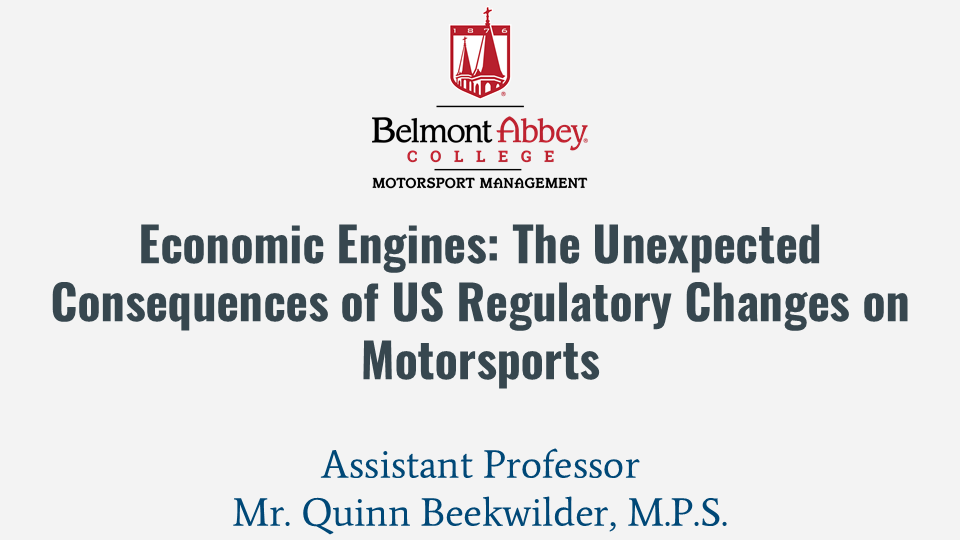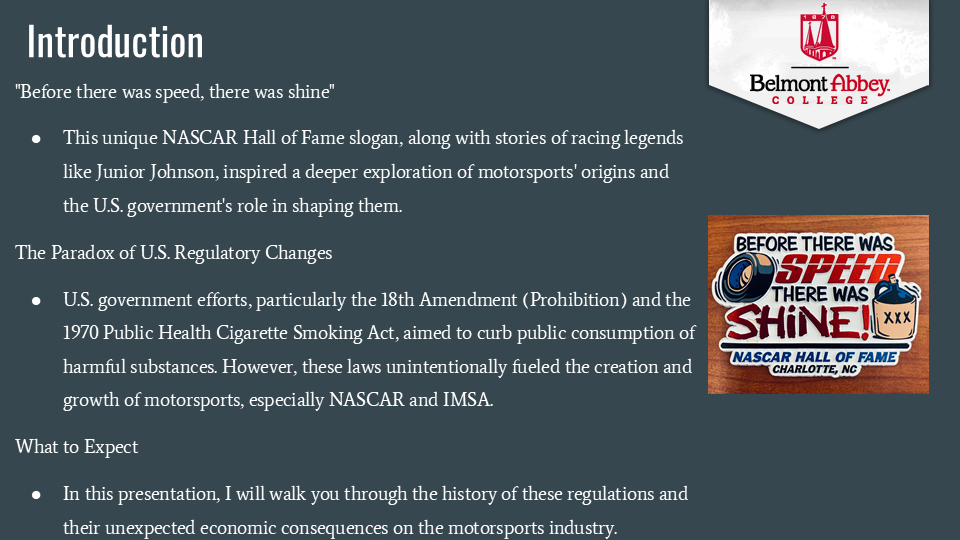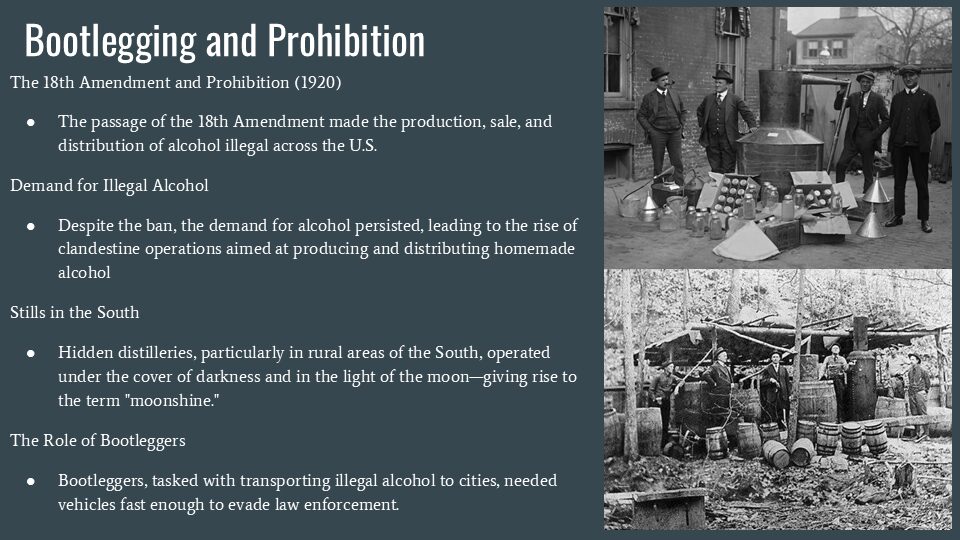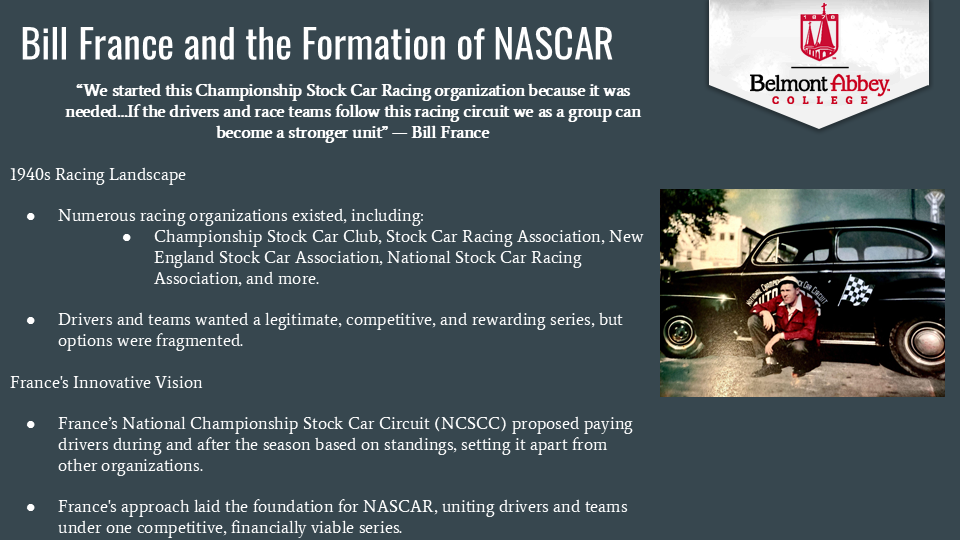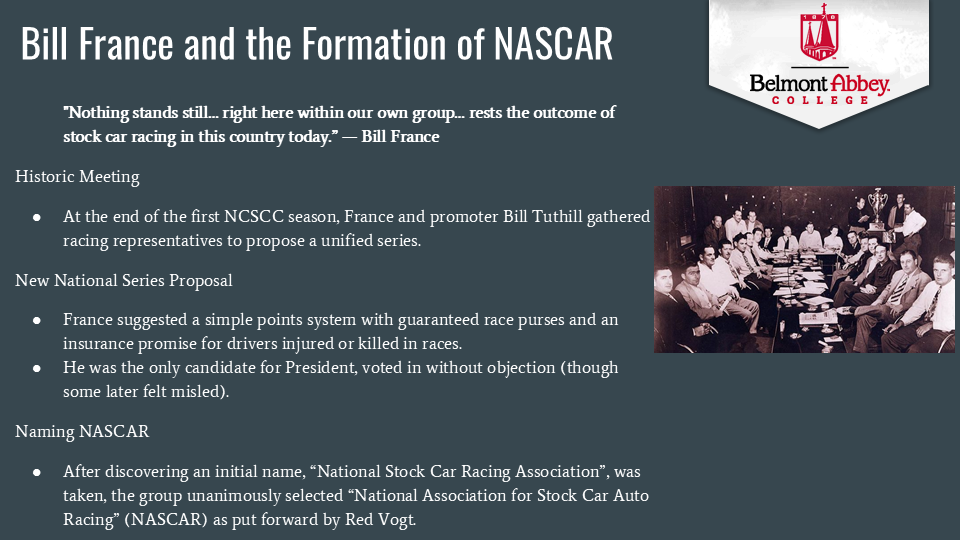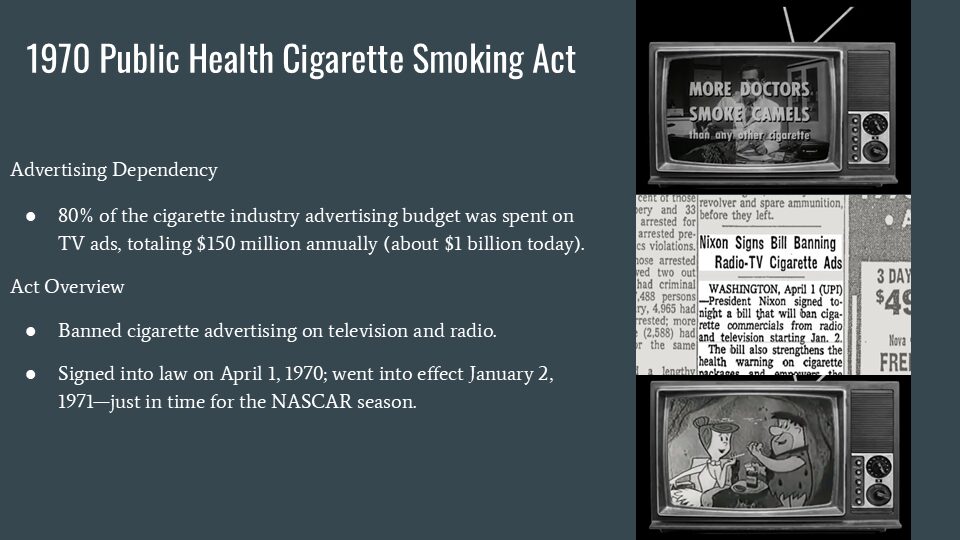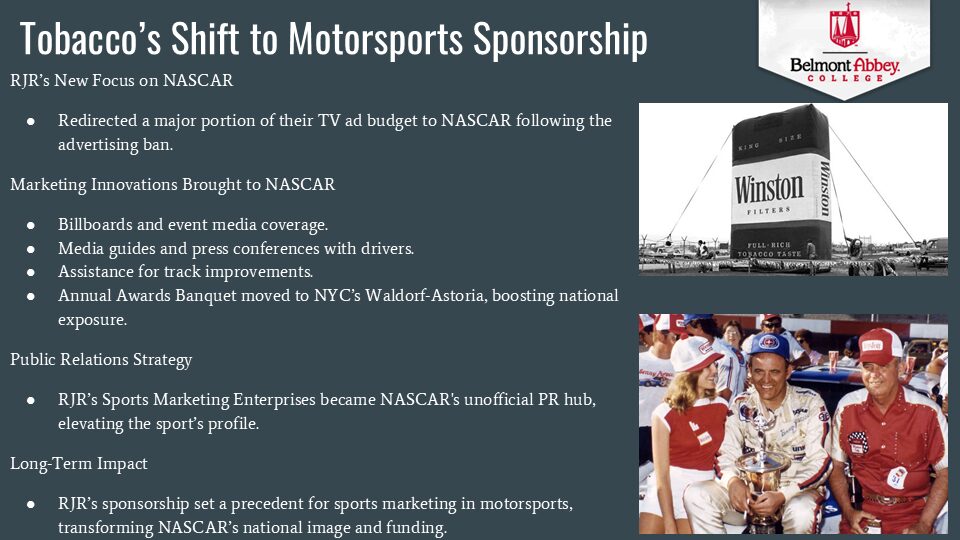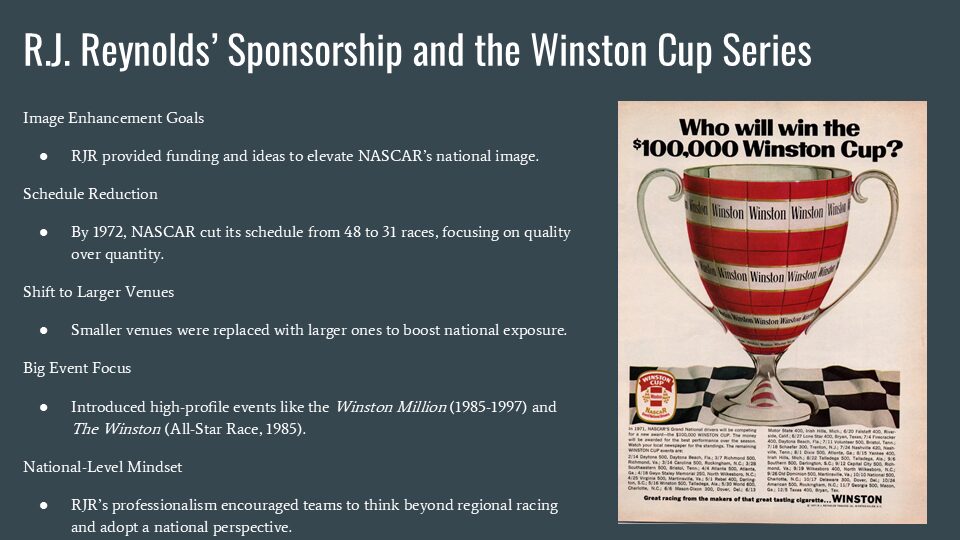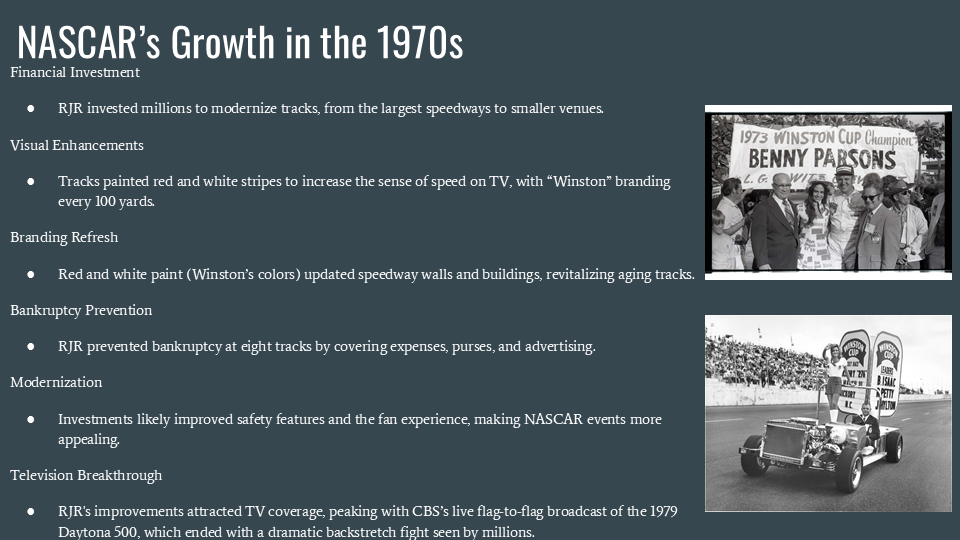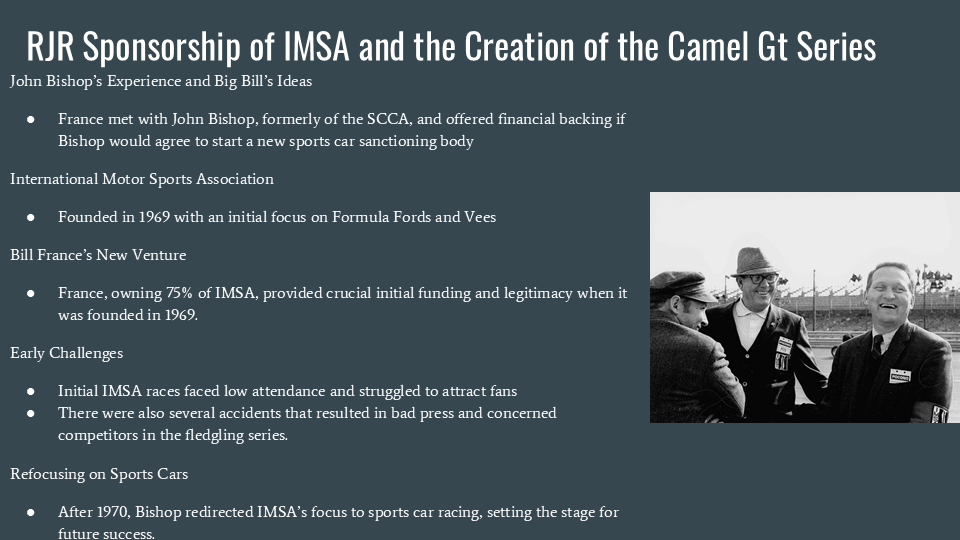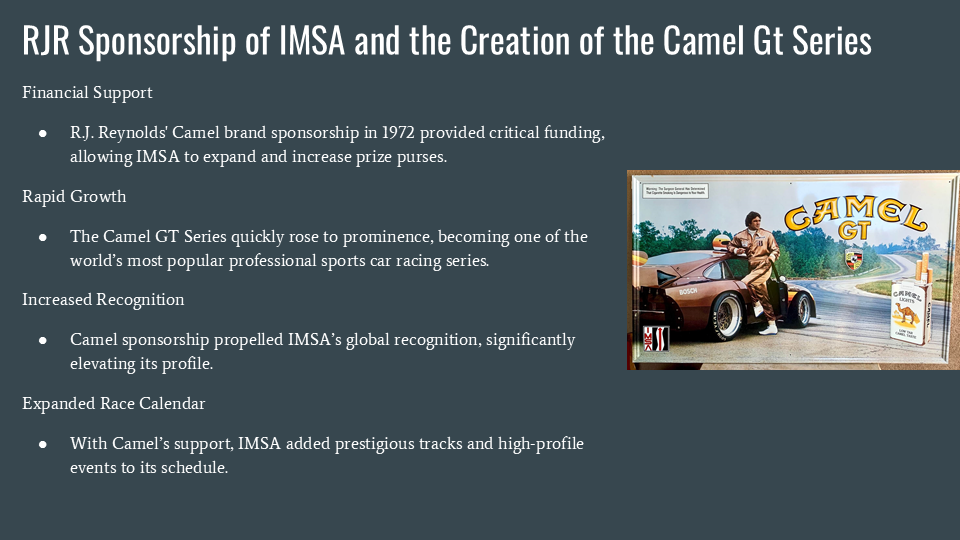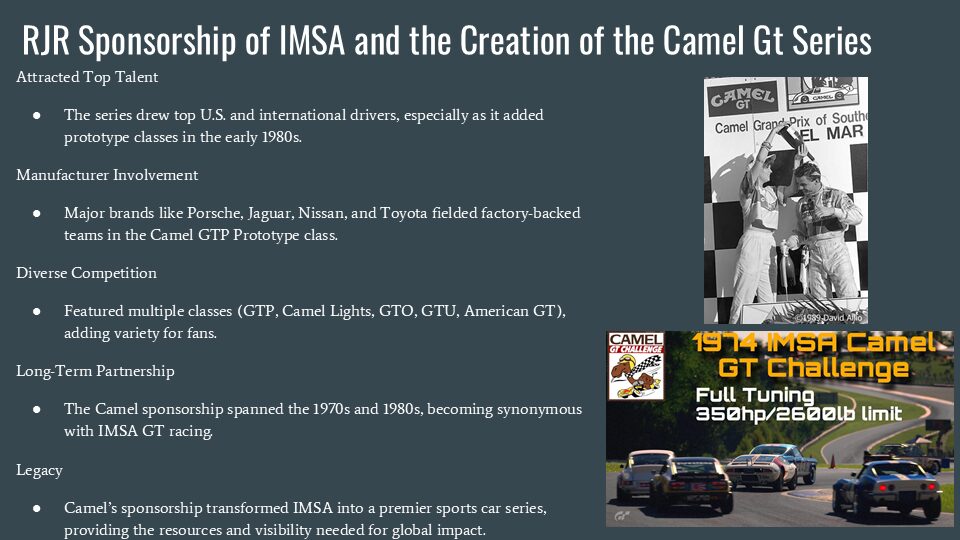This presentation examines the unanticipated outcomes of government regulations, mainly focusing on tobacco and alcohol regulations and their profound impact on the motorsports industry. Originally instituted to mitigate the promotion and distribution of harmful substances, these regulations inadvertently fostered a new era of sponsorship and revenue streams for motorsports. By analyzing historical context, regulatory changes, and the strategic adaptations of motorsports organizations, we uncover how these laws fundamentally transformed the economic landscape of the sport.
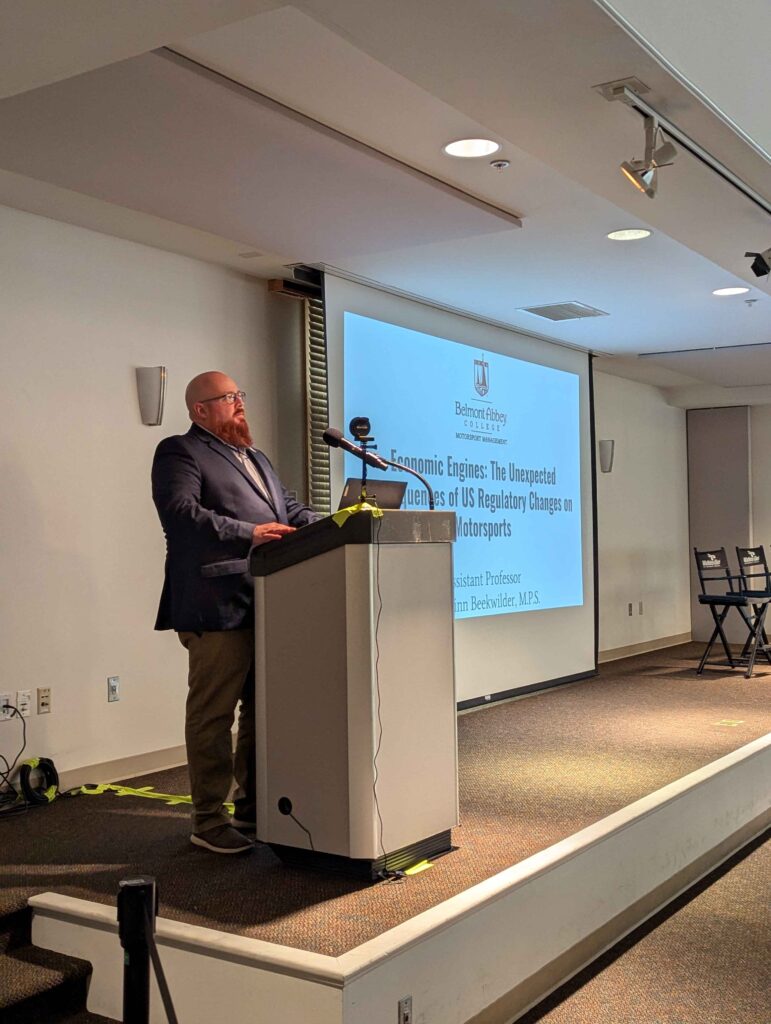
Quinn Beekwilder speaking at the 8th Annual Argetsinger Symposium on Motorsports History at Watkins Glen
In the early 20th century, Prohibition in the United States catalyzed the rise of stock car racing, as bootleggers modified their vehicles to evade law enforcement. This phenomenon laid the groundwork for the widespread popularity of motorsports in the U.S. Subsequently, tobacco companies leveraged the sport’s high visibility to advertise their products, providing substantial financial support for racing teams and events. The 1970 Public Health Cigarette Smoking Act, which banned tobacco advertising on television, aimed to protect public health but inadvertently led to a sponsorship windfall for NASCAR, resulting in the creation of the Winston Cup Series and the Camel GT series, further entrenching tobacco’s financial influence in motorsports.
By examining these developments, this presentation looks at the interplay between public health policy and commercial interests, understanding how government regulations designed to protect public health can have far-reaching and sometimes unforeseen effects on industries like motorsports.
This episode is sponsored in part by: The International Motor Racing Research Center (IMRRC), The Society of Automotive Historians (SAH), The Watkins Glen Area Chamber of Commerce, and the Argetsinger Family – and was recorded in front of a live studio audience. And has been Edited, Remastered and Produced in partnership with the Motoring Podcast Network.
Bio
Quinn Beekwilder is the Assistant Professor and Coordinator of the Motorsport Management degree at Belmont Abbey College. With a decade of experience at Charlotte Motor Speedway and as one of the program’s first graduates, he brings invaluable industry insights and addresses student concerns effectively.
Mr. Beekwilder’s passion for motorsport history drives him to design courses that highlight the historical development and societal impact of motorsports. His innovative approach includes experiential activities that blend theoretical knowledge with practical experience.
Slides
Swipe left or right (or use the arrows/dots) to navigate through the presentation slides as you follow along with the episode.


